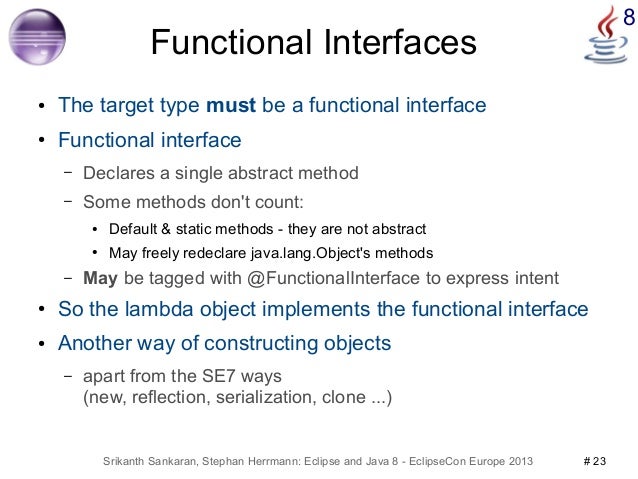Serialize Lambda Expression

Serialized form of a lambda expression. The properties of this class represent the information that is present at the lambda factory site, including static metafactory arguments such as the identity of the primary functional interface method and the identity of the implementation method, as well as dynamic metafactory arguments such as values captured from the lexical scope at the time of lambda capture. Implementors of serializable lambdas, such as compilers or language runtime libraries, are expected to ensure that instances deserialize properly. One means to do so is to ensure that the writeReplace method returns an instance of SerializedLambda, rather than allowing default serialization to proceed.
C# Serialize
Lambda expressions enable you to do this. You can serialize a lambda expression if its target type and its captured arguments are serializable.
SerializedLambda has a readResolve method that looks for a (possibly private) static method called $deserializeLambda$(SerializedLambda) in the capturing class, invokes that with itself as the first argument, and returns the result. Lambda classes implementing $deserializeLambda$ are responsible for validating that the properties of the SerializedLambda are consistent with a lambda actually captured by that class. Create a SerializedLambda from the low-level information present at the lambda factory site. Returns a string representation of the object.
In general, the toString method returns a string that 'textually represents' this object. The result should be a concise but informative representation that is easy for a person to read. It is recommended that all subclasses override this method. The toString method for class Object returns a string consisting of the name of the class of which the object is an instance, the at-sign character ` @', and the unsigned hexadecimal representation of the hash code of the object. In other words, this method returns a string equal to the value of: getClass.getName + '@' + Integer.toHexString(hashCode) Overrides: in class Returns: a string representation of the object.
